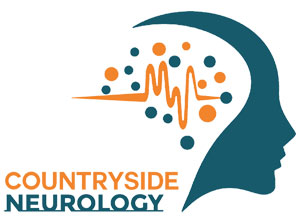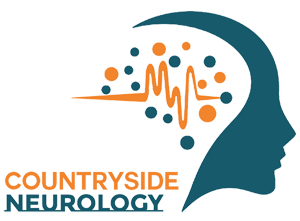In recent years, breathwork has moved from the yoga mat to the forefront of neuroscience. Far more than a relaxation trend, research shows that how we breathe directly impacts brain function, stress response, and emotional regulation. At Countryside Neurology, we believe in combining evidence-based practices with advanced treatments like TMS therapy to support your mental health from all angles.
Your Breath, Your Brain: The Science Behind It
Breathing is typically automatic—but it’s also one of the few autonomic functions we can consciously control. This makes it a powerful bridge between body and mind.
The brainstem regulates breathing patterns, but when we take slow, deliberate breaths, higher-order brain regions—such as the prefrontal cortex and insula—are activated. These areas are associated with emotional awareness, decision-making, and self-regulation.
When breathing becomes shallow or rapid (as it often does with anxiety), it signals to the brain that we’re in danger. The amygdala, our brain’s alarm system, becomes hyperactive. Over time, this can contribute to chronic stress, anxiety disorders, and even depression.
Deep Breathing Changes Brain Chemistry
Controlled breathwork—especially practices like diaphragmatic breathing or box breathing—activates the parasympathetic nervous system, often called the “rest and digest” mode. This helps:
- Reduce cortisol levels (the stress hormone)
- Decrease heart rate and blood pressure
- Improve mood by regulating neurotransmitters like serotonin and GABA
In fact, studies using brain imaging have shown that participants practicing slow breathing experienced reduced activity in stress-related brain regions and enhanced connectivity in mood-regulating areas.
Breath as a Daily Mental Health Tool
While techniques like Transcranial Magnetic Stimulation (TMS) at our Palm Harbor clinic can offer significant relief for treatment-resistant depression or anxiety, breathwork is a powerful daily supplement that patients can use anytime, anywhere.
Here are three simple techniques to try:
- Box Breathing: Inhale for 4 seconds, hold for 4, exhale for 4, hold again for 4. Repeat.
- 4-7-8 Breathing: Inhale for 4 seconds, hold for 7, exhale for 8. Great before bed.
- Nasal Breathing: Breathe slowly through your nose with awareness. This promotes better oxygenation and calming effects.
Integrating Breath into Neurology Care
At Countryside Neurology, we support a whole-person approach to mental health. Whether you’re navigating anxiety, depression, or neurological conditions that impact emotional health, we offer personalized care—including TMS therapy, neurologic evaluations, and education—to empower your healing.
Your breath is always with you—and now, neuroscience confirms it can be one of your most powerful tools.
Countryside Neurology
- Address: 2595 Tampa Road, Suite V & W, Palm Harbor, FL 34684
- Phone: 727-712-1567
- Instagram: @countrysideneurology
For more insights or to see if TMS therapy is right for you, contact us today.





